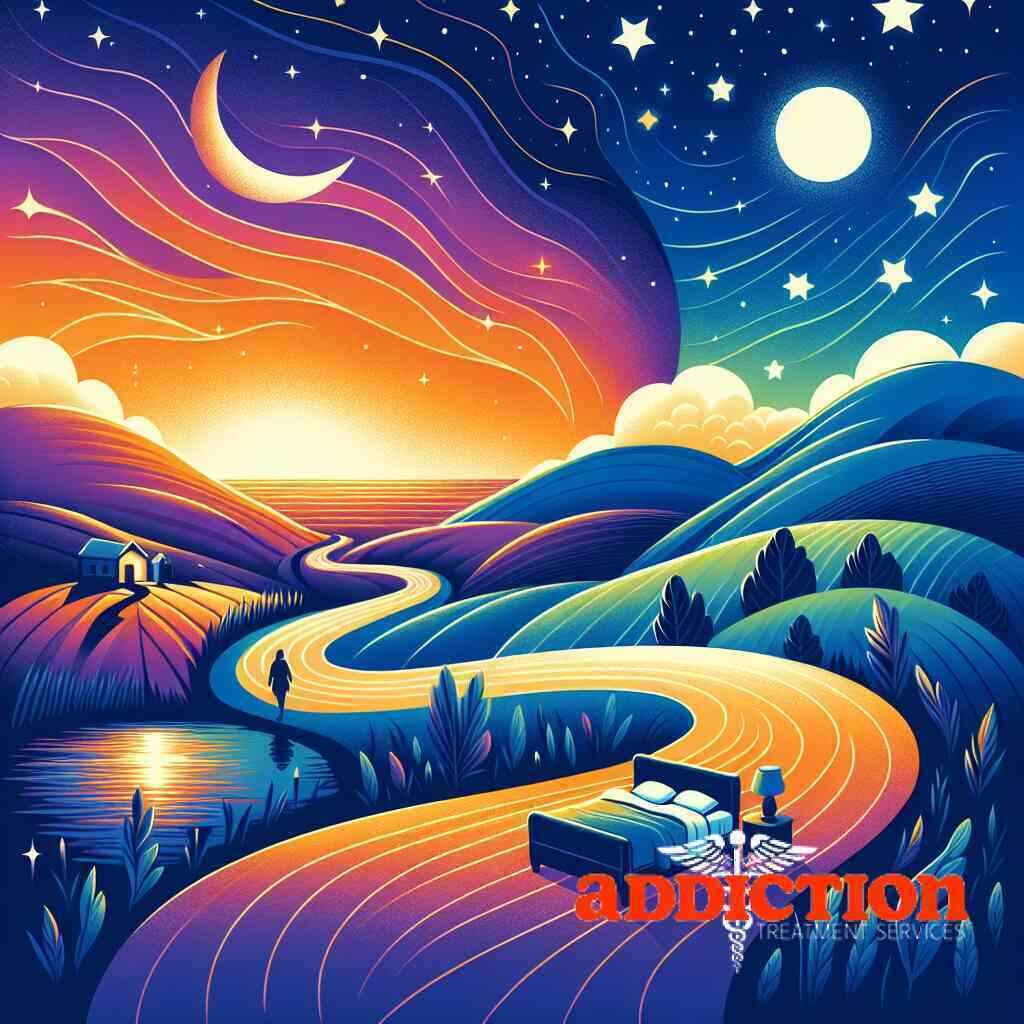 Posted On: 08/31/2024
Posted On: 08/31/2024Introduction to Melatonin and Sleep Health
Understanding Melatonin
Melatonin is often referred to as the sleep hormone, playing a crucial role in regulating our sleep-wake cycle. Produced naturally by the pineal gland in the brain, melatonin levels typically rise in the evening to promote sleep and decrease in the morning to help us wake up. Given its central role in our sleep patterns, melatonin supplements have become a popular non-prescription aid for those looking to improve their sleep quality. Unlike many sleep medications, melatonin is generally considered safe for short-term use, with minimal risks of dependency or severe side effects. However, understanding how melatonin works and its impact on the body is essential for anyone considering its use.
The Role of Melatonin in Sleep
Melatonin’s primary job is to signal to the brain that it’s time to sleep, which helps to regulate the body’s internal clock, known as the circadian rhythm. This natural hormone responds to darkness, cueing the body to prepare for sleep, making it an essential component of our ability to fall asleep and wake up naturally. Its levels can be affected by various factors, including light exposure, especially blue light from screens, which can reduce melatonin production and disrupt sleep patterns. This has led to an increased interest in melatonin supplements, especially among those who struggle with insomnia, jet lag or work night shifts.
Non-Prescription Sleep Aid Overview
As a non-prescription sleep aid, melatonin supplements are readily available and widely used by people of all ages to improve sleep quality and manage sleep disorders. Unlike prescription sleep medications, melatonin is not associated with a high risk of addiction or dependence. However, there’s a common misconception that because it’s naturally occurring and available over the counter, it’s completely harmless. While melatonin is considered safe for short-term use, prolonged use or excessive dosages can lead to potential side effects, including dizziness, headaches, and next-day grogginess. Coupled with the absence of stringent regulatory oversight compared to prescription medications, consumers must use melatonin supplements judiciously and be aware of the potential risks and benefits.
Exploring the Concept of Melatonin Addiction
Defining Melatonin Addiction and Dependence
Melatonin, known for its critical role in regulating sleep, has grown in popularity as a safe, non-prescription sleep aid. Given its availability and perceived harmlessness, questions arise about the possibility of melatonin addiction or dependence. It’s important to clarify that melatonin addiction, in the traditional sense associated with substances like opioids or alcohol, is not supported by current evidence. Addiction is typically characterized by a compulsive need to use a substance despite harmful consequences. Melatonin, by contrast, does not seem to induce physical dependence, a state where the body requires the substance to function normally, or withdrawal symptoms, which are adverse effects experienced when stopping a substance the body has become dependent on.
However, psychological dependence on melatonin can occur. This form of dependence is characterized by the belief that the ability to sleep is entirely reliant on the supplement. While the body might not crave melatonin, the mind insists on its necessity for sleep, creating a habit that can be challenging to break. Understanding this distinction is crucial for individuals using melatonin to manage sleep behaviors and for healthcare providers advising on sleep aids.
Melatonin Abuse vs. Proper Use
Navigating the thin line between melatonin abuse and proper use requires awareness and education. Adequate use of melatonin as a sleep aid is generally considered short-term, involving low doses to adjust sleep cycles, such as when dealing with jet lag or adapting to shift work. Abuse, on the other hand, might include taking higher doses than recommended or using melatonin nightly over extended periods without medical guidance. Misuse can lead to diminished effectiveness, altering sleep patterns and potentially causing side effects that impact daytime functioning and overall quality of life.
The absence of strict regulation over melatonin supplements contributes to the variability in dosage and purity, raising the potential for misuse. Educating consumers on appropriate melatonin use is essential, highlighting that while it can be a helpful tool for sleep induction, it is not a cure-all for sleep disorders. Optimal sleep hygiene practices and consulting healthcare providers can prevent misuse and promote more sustainable sleep health strategies.
Signs of Unhealthy Melatonin Use
Recognizing the signs of unhealthy melatonin use is critical for individuals and their loved ones. While physical dependency may not occur, reliance on melatonin may manifest through behaviors and attitudes toward sleep. Indicators of unhealthy use include:
- We are increasing the dose over time to achieve the same sleep-inducing effects that suggest tolerance.
- I was experiencing anxiety or stress about missing a dose or not having access to melatonin.
- I am relying on melatonin as the primary strategy for managing sleep issues without exploring other treatments or sleep hygiene practices.
- You are ignoring potential side effects like drowsiness, dizziness, or headaches and continuing use.
Understanding these signs can prompt individuals to reassess their use of melatonin and seek professional advice. Addressing unhealthy melatonin use early can help prevent the development of a psychological dependency and encourage the exploration of alternative and holistic approaches for sleep management. Addiction Treatment Services provides resources and support for those looking to understand and manage their use of non-prescription sleep aids like melatonin. It emphasizes the importance of balanced and informed approaches to sleep health.
Melatonin Withdrawal Symptoms and Management
Identifying Melatonin Withdrawal Symptoms
Although melatonin is not associated with physical dependence in the same way that some substances are, discontinuing its use, especially after prolonged periods, might lead to disruptions in natural sleep patterns. Some individuals may experience difficulty falling asleep, changes in dream patterns, or a return of insomnia symptoms. Unlike withdrawal from addictive substances, where symptoms can be severe and physically debilitating, melatonin discontinuation symptoms primarily revolve around sleep disturbances and emotional distress related to sleep difficulties.
Recognizing these symptoms is crucial for individuals who have been relying on melatonin to regulate their sleep cycles. Awareness can help develop a plan to return to natural sleep methods without the supplement. Importantly, while these symptoms can be uncomfortable, they are not life-threatening and typically dissipate as the body readjusts its natural production of melatonin.
Managing Withdrawal: Tips and Strategies
The key to effectively managing withdrawal symptoms from melatonin involves gradually reducing dependence on the supplement while implementing healthy sleep hygiene practices. Gradually tapering off the dosage can help ease the body’s reliance on external sources of melatonin. Simultaneously, adopting sleep-promoting behaviors such as maintaining a consistent sleep schedule, avoiding screen time before bed, and creating a restful sleeping environment can aid in the transition.
Incorporating relaxation techniques such as meditation, deep breathing exercises, or yoga before bedtime can also help manage stress and anxiety related to changes in sleep patterns. These strategies not only aid in mitigating withdrawal symptoms but also promote overall better sleep quality and health. For a more personalized approach, individuals can find addiction recovery services near you that may offer guidance tailored to their specific situation.
When to Seek Professional Help
If withdrawal symptoms persist or if returning to natural sleep patterns seems particularly challenging, it may be necessary to seek professional help. This is especially true for individuals who have underlying sleep disorders or have been using melatonin to manage symptoms of a deeper issue. Health professionals can offer a comprehensive evaluation and suggest a variety of treatment options, from behavioral therapy aimed at improving sleep habits to exploring other medication-assisted treatments if necessary.
Professionals specializing in sleep disorders can also guide holistic treatment options and strategies for preventing relapse into unhealthy sleep aid use. By addressing both the physical and psychological aspects of sleep health, individuals can achieve a more sustainable and healthier sleep cycle. For those seeking assistance, addiction treatment services offer comprehensive resources and support systems designed to navigate the challenges of overcoming dependence on sleep aids like melatonin.
Addiction Treatment Services for Substance Misuse
Substance Use Disorders and Over-The-Counter Medication Abuse
Substance use disorders (SUDs) impact millions of individuals across the United States, manifesting through the compulsive use of substances despite harmful consequences. Traditionally, when we speak of SUDs, the mind goes to illicit drugs, alcohol, or prescription medications. However, over-the-counter (OTC) medication abuse is a less conspicuous but equally concerning aspect of substance misuse. Among OTC medications, sleep aids like melatonin have garnered attention for their potential misuse. While the conversation around melatonin side effects and dependence is growing, it’s crucial to distinguish between physical dependence and psychological reliance, which can both signal misuse. Addiction Treatment Services offers resources and support to individuals navigating the complex pathway of SUDs, including those struggling with the misuse of seemingly benign sleep aids. Our commitment extends to illuminating paths toward recovery and healing, ensuring a holistic approach to addressing the multifaceted nature of addiction.
Behavioral Health Services for Sleep Disorder Treatment
Sleep disorders are a prevalent concern, affecting the health and well-being of countless individuals. Often, those battling sleep-related issues may turn to over-the-counter solutions like melatonin without professional guidance, a practice that can mask underlying conditions and lead to misuse. Recognizing the intricacies of sleep health, behavioral health services for sleeping disorder treatments play a pivotal role in addressing the root causes of sleep disturbances. Through comprehensive evaluation and tailored intervention strategies, professionals in the fieldwork to uncover the psychological and physiological factors contributing to sleep disorders. Addiction Treatment Services advocates for a proactive approach to sleep health, encouraging those affected to seek out behavioral health interventions. These services not only offer immediate relief but also equip individuals with the tools necessary for long-term management of sleep health, steering clear of dependency on sleep medications.
Medication-Assisted Treatment and Holistic Treatment Options
In the realm of addiction treatment, there’s a growing acknowledgment of the need for versatile and personalized approaches to care. Medication-assisted treatment (MAT) has emerged as a cornerstone for many, particularly in combating opioid addiction, by alleviating withdrawal symptoms and curbing cravings. However, the principles of MAT can also be valuable in addressing dependencies involving non-prescription substances, including sleep aids like melatonin. Exploring holistic approaches for substance misuse treatments alongside MAT, Addiction Treatment Services embraces the nuanced needs of each individual’s recovery journey. Incorporating elements such as mindfulness, nutrition, exercise, and psychotherapy, holistic treatments aim to mend the mind, body, and spirit. This comprehensive care model underscores the importance of viewing addiction through a broad lens, acknowledging every aspect of an individual’s life affected by substance misuse. By marrying MAT with holistic practices, Addiction Treatment Services aspires to foster resilience, encourage healing, and support lasting recovery for those grappling with the complexities of addiction, including the misuse of over-the-counter medications like melatonin.
Preventing Melatonin Misuse and Promoting Healthy Sleep
Natural Alternatives to Melatonin Supplements
In the journey towards achieving restful sleep without the risk of melatonin misuse, exploring natural alternatives becomes pivotal. Natural sleep aids, unlike synthetic supplements, work in harmony with the body’s intrinsic mechanisms to foster sleep. Among these alternatives, herbs like valerian root and chamomile stand out for their calming and sleep-inducing properties. Additionally, magnesium, a mineral essential for brain function, has been shown to improve sleep quality by regulating neurotransmitters linked to sleep.
Another often underutilized approach involves leveraging amino acids such as L-theanine, found in green tea, known for its ability to promote relaxation without drowsiness. Combining these natural supplements with a well-rounded, nutritious diet rich in vitamins and minerals can create a solid foundation for enhancing sleep quality without the reliance on melatonin. It’s important to consult with a healthcare provider before beginning any new supplement regimen, ensuring it aligns with individual health needs and does not interact with existing medications.
Lifestyle Changes for Better Sleep Health
Addressing sleep health extends beyond what we consume; it involves a holistic reevaluation of our daily routines and our environment. Establishing a consistent sleep schedule, aiming for 7-9 hours of sleep each night, sets the circadian rhythm, reducing the need for sleep aids. Reducing exposure to blue light from screens at least an hour before bed can also significantly improve one’s ability to fall asleep naturally, as blue light inhibits melatonin production.
It is creating a sleep-conducive environment – cool, dark, and quiet – that further signals to the body that it’s time to wind down. Engaging in regular physical activity is another lifestyle adjustment with a direct positive impact on sleep quality, though it’s best to avoid vigorous exercise close to bedtime. These lifestyle changes, while simple in concept, require consistency and dedication to enhance sleep health effectively. For detailed assistance in implementing these changes and understanding more about natural sleep supplements, exploring an addiction treatment blog can provide valuable insights and guidance.
Relapse Prevention and Recovery Support Services
Navigating the path away from dependency on melatonin or other sleep aids is a journey that benefits greatly from structured support. Relapse prevention strategies, critical in sustained recovery from any form of substance misuse, are equally applicable here. These include identifying and addressing triggers that lead to poor sleep habits, such as stress or specific lifestyle factors, and developing healthy coping mechanisms in response.
Recovery support services play an indispensable role in providing the necessary guidance and community to maintain these new healthy habits. These services can offer counseling, group support meetings, and educational resources aimed at bolstering the individual’s ability to manage stress and engage in positive sleep practices. Engaging with a professional can also facilitate the discovery of underlying issues contributing to sleep difficulties, ensuring a comprehensive approach to treatment.
For those seeking assistance, contacting addiction support services can be the first step towards finding tailored support and resources designed to aid in the journey toward healthy sleep habits and overall well-being.
Conclusion: Navigating Toward a Healthier Night’s Sleep

Summary of Melatonin Misuse and Recovery
Melatonin misuse, while not leading to physical addiction, underscores a pronounced need for awareness and education related to sleep health and supplement use. The journey towards better sleep shouldn’t hinge on a single solution, especially when it risks forming a psychological dependency. The stories and experiences shared within the realms of addiction recovery in Nevada and beyond illustrate that recovery from any form of substance misuse, including over-the-counter sleep aids, demands a multifaceted approach. It involves understanding the underlying causes of sleep disturbances, recognizing the signs of misuse, and taking proactive steps to address it. The aim is not just to eliminate the dependency but to foster a lifestyle that naturally supports restorative sleep.
The Importance of Professional Guidance
Seeking professional guidance from reputable sources such as Addiction Treatment Services is imperative. Professionals in the addiction recovery field possess the expertise to offer personalized advice and treatment strategies that go beyond mere symptom management. Whether it’s through counseling, holistic treatment options, or medication-assisted treatments tailor-made for those grappling with substance misuse, the guidance received can be transformative. These experts not only provide the tools needed for effective recovery but also understand the psychological nuances that accompany dependence on sleep aids like melatonin. By tapping into this reservoir of knowledge, individuals find not just recovery but a pathway to sustainable well-being.
Maintaining Sleep Health without Dependence
Achieving and maintaining sleep health without dependence on melatonin or any other sleep aid requires a commitment to holistic wellness. Incorporating natural sleep aids, embracing lifestyle changes that promote sleep, and employing relapse prevention strategies are all parts of a comprehensive plan to secure restful nights. It’s about creating a sleep-friendly environment, both physically and mentally, that encourages the body’s natural sleep mechanisms. Regular exercise, a balanced diet, mindfulness practices, and establishing a bedtime routine all play significant roles in this endeavor. Moreover, fostering an understanding of sleep hygiene and its principles can empower individuals to make informed choices about their sleep health, reducing the likelihood of falling back on unnecessary crutches.
Navigating toward healthier sleep practices is an ongoing journey, one that may have its challenges but is certainly achievable with the right support and knowledge. As individuals work towards this goal, it is essential to remember that sleep, like other aspects of health, thrives on balance, routine, and self-care. With proactive efforts and the support of addiction treatment centers and professional resources, a night of good, dependency-free sleep is within reach.
Frequently Asked Questions
Question: What are the risks of long-term melatonin use, and how does it relate to the concept of melatonin addiction covered in the ‘Can You Get Addicted to Melatonin?’ article?
Answer: The risks of long-term melatonin use include the potential for developing a psychological dependence rather than a physical addiction. As highlighted in the ‘Can You Get Addicted to Melatonin?’ article, melatonin abuse can lead to an increased tolerance, where higher doses are needed to achieve the same effect, and reliance on the supplement for sleep. While melatonin doesn’t typically cause a physical addiction, misusing it can disrupt natural sleep-wake cycles and may cause side effects like dizziness, headache, and next-day grogginess. At Addiction Treatment Services, we emphasize the importance of using melatonin responsibly and as a short-term solution. Our services can help individuals explore alternative sleep disorder treatments and behavioral health services, guiding them toward achieving healthy sleep without dependence on supplements.
Question: Can Addiction Treatment Services assist with managing melatonin withdrawal symptoms and developing healthy sleep habits?
Answer: Yes, Addiction Treatment Services offers comprehensive support for individuals looking to manage melatonin withdrawal symptoms and embrace healthy sleep habits. Our network includes addiction treatment centers and behavioral health services that specialize in substance use disorders, including the misuse of non-prescription sleep aids like melatonin. By connecting with our recovery support services, individuals can receive personalized advice, access to detoxification services, and enrolment in holistic treatment options. Our goal is to ensure that every person has the tools and resources necessary for a successful recovery process, including the establishment of sustainable, natural sleep routines that don’t rely on medication.
Question: What types of behavioral health services does Addiction Treatment Services recommend for treating sleep disorders without depending on melatonin or other sleep aids?
Answer: At Addiction Treatment Services, we recognize the critical role of behavioral health services in treating sleep disorders effectively without relying on melatonin or other sleep medications. Our recommended services include cognitive-behavioral therapy (CBT) for insomnia, which addresses the thoughts and behaviors that can contribute to sleep issues. Additionally, we advocate for lifestyle and environmental changes that promote natural sleep, such as maintaining a regular sleep schedule, practicing relaxation techniques, and creating a sleep-conducive environment. We also suggest engaging in physical activities and managing screen time as part of a comprehensive approach to improving sleep health. Connecting with addiction treatment centers through our directory can provide access to these services, ensuring a personalized and holistic treatment plan.
Question: How does Addiction Treatment Services approach the treatment of substance misuse, including over-the-counter medication abuse like melatonin?
Answer: Addiction Treatment Services approaches the treatment of substance misuse, including over-the-counter medication abuse such as melatonin, with a comprehensive and individualized strategy. Our methodology encompasses a broad spectrum of addiction recovery services, from initial detoxification services to intensive outpatient programs and relapse prevention strategies. We understand that substance misuse, whether it involves prescription drugs, illicit substances, or over-the-counter medications, requires a multifaceted treatment approach. This includes medication-assisted treatment (MAT), behavioral health services, and holistic treatment options to address the physical, emotional, and psychological aspects of addiction. Our objective is to guide individuals toward recovery through education, support, and access to experienced addiction treatment centers, emphasizing the importance of mental health services in the recovery process.
Question: What support does Addiction Treatment Services offer for families trying to help a loved one dealing with sleep medication addiction or misuse?
Answer: Addiction Treatment Services provides significant support for families seeking to help a loved one struggling with sleep medication addiction or misuse. Recognizing the crucial role families play in the recovery process, we offer resources that facilitate understanding and navigating substance use disorders comprehensively. This includes access to family counseling, educational programs about substance abuse and its impact, and guidance on how to stage effective interventions. Moreover, our directory connects families to addiction treatment centers experienced in family therapy and support groups, fostering a supportive environment for both the individual and their loved ones. By leveraging these resources, families can become integral participants in the journey toward wellness, equipped with the strategies necessary for early intervention and sustained recovery support.



